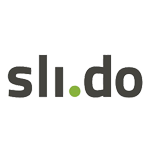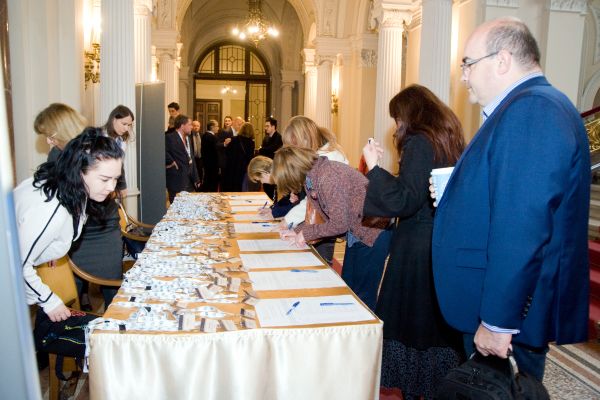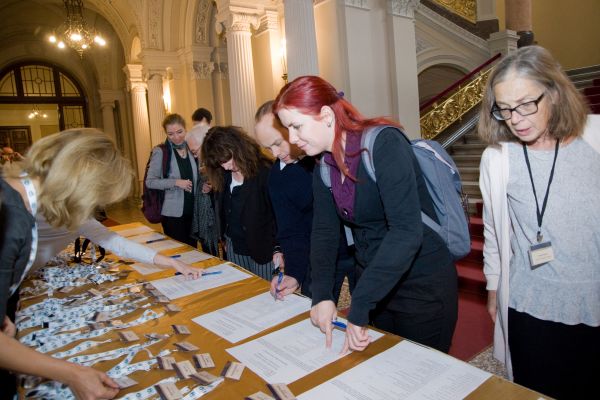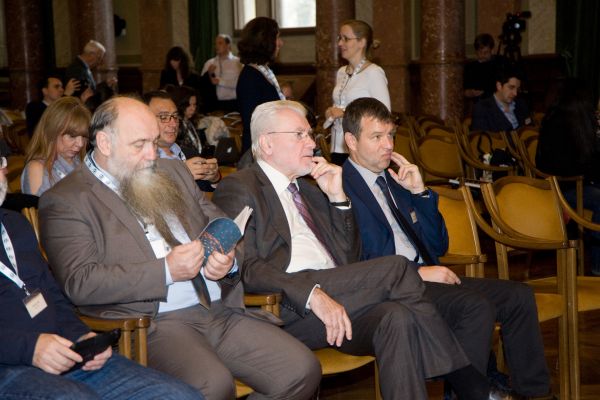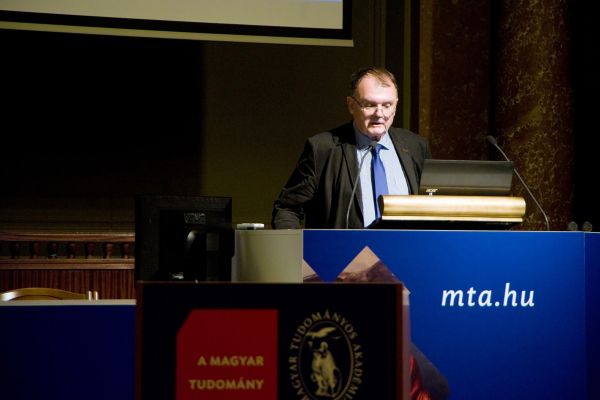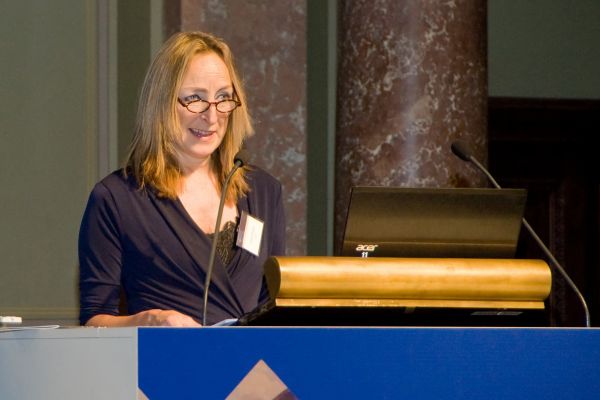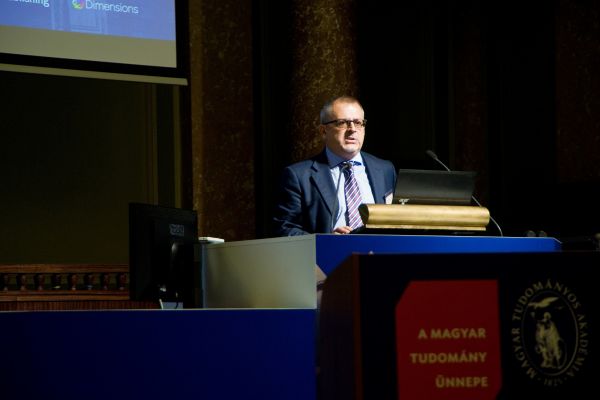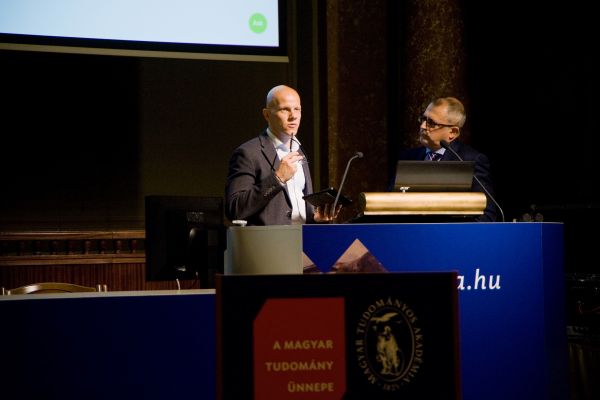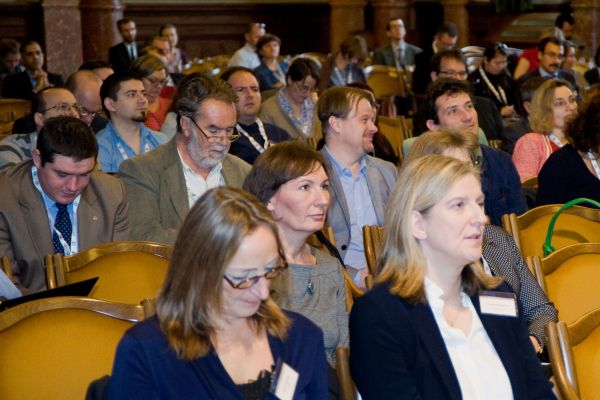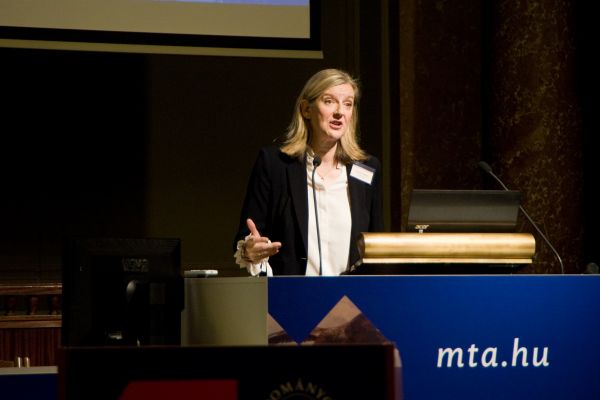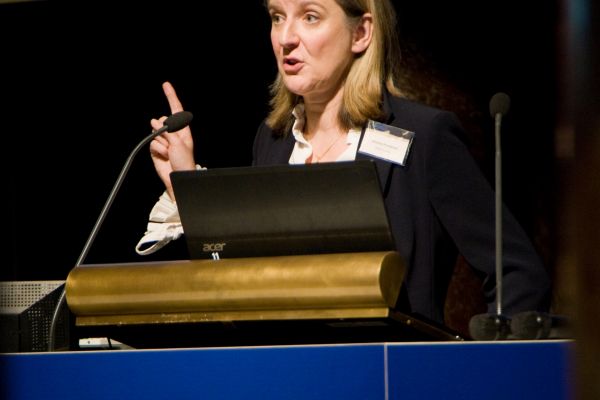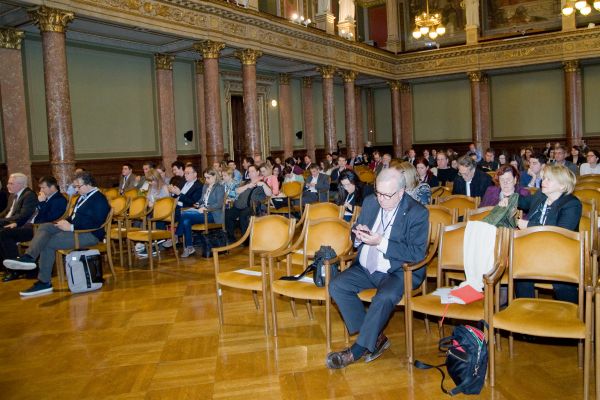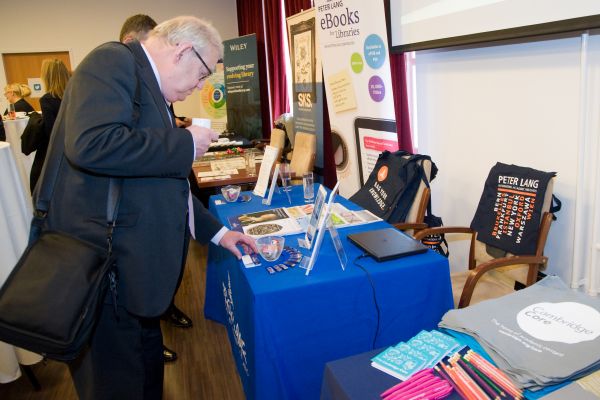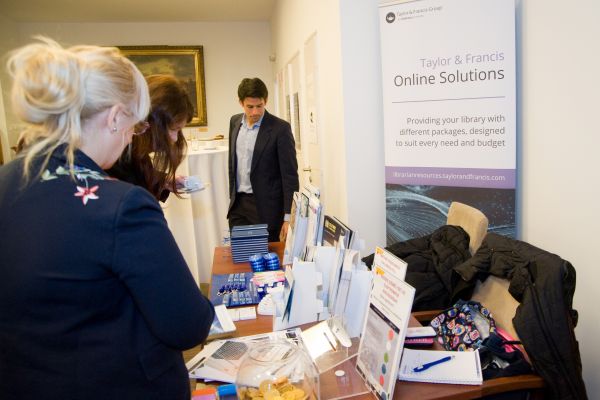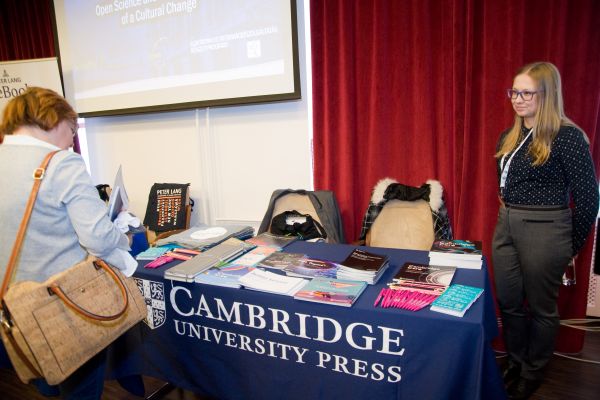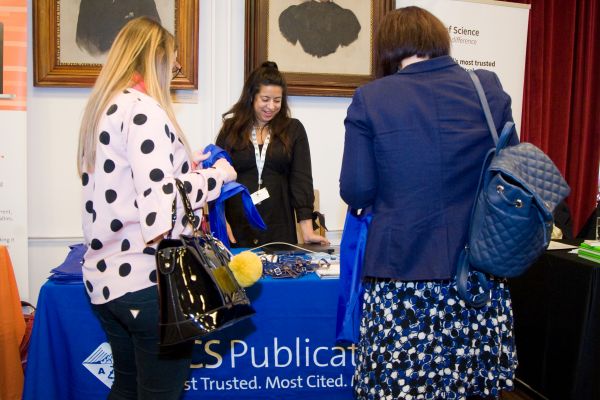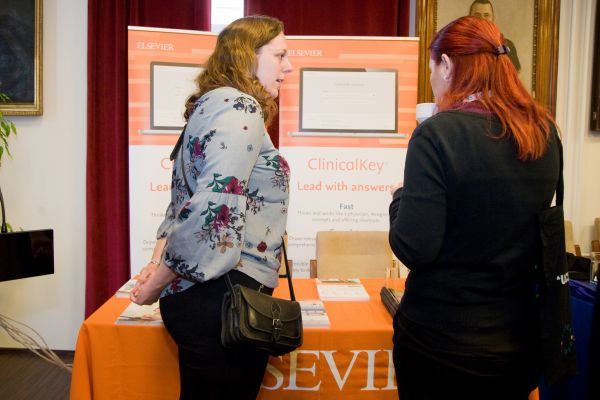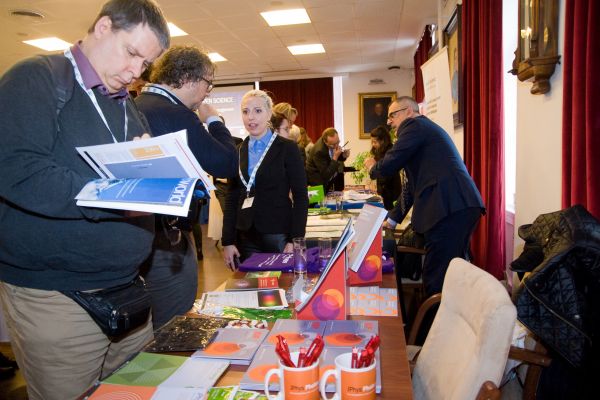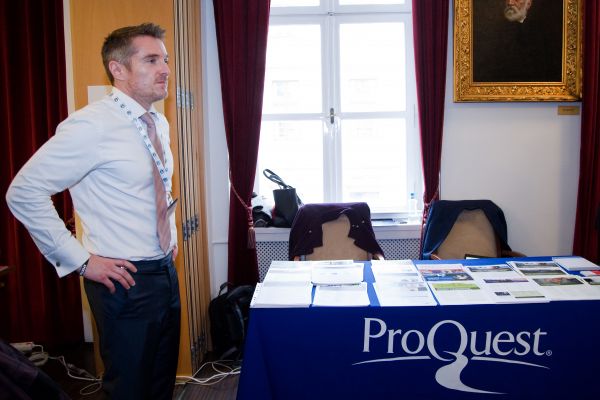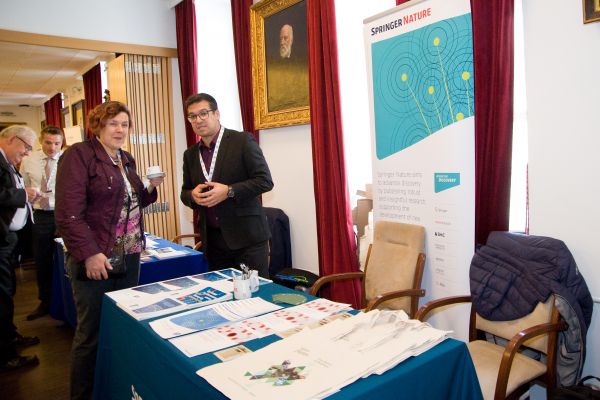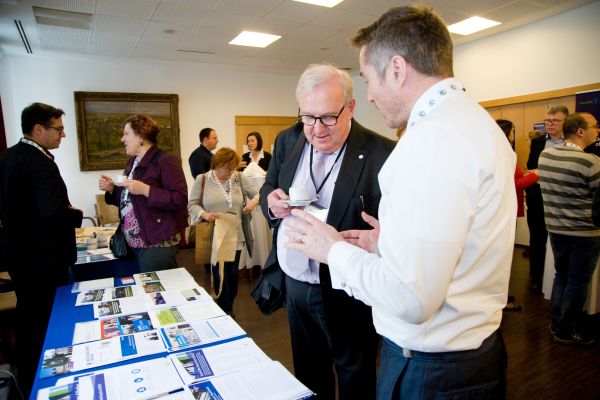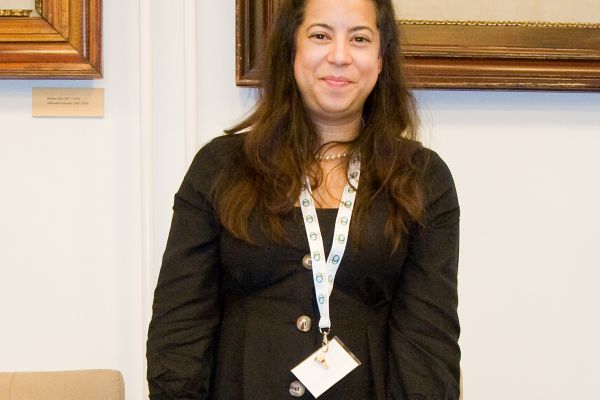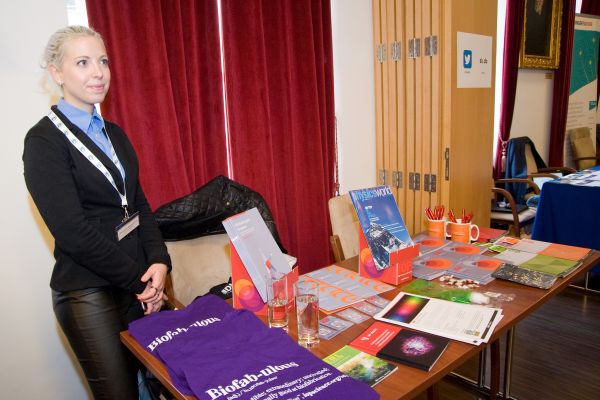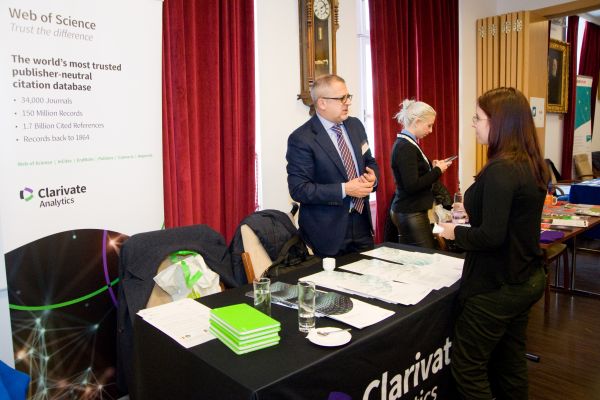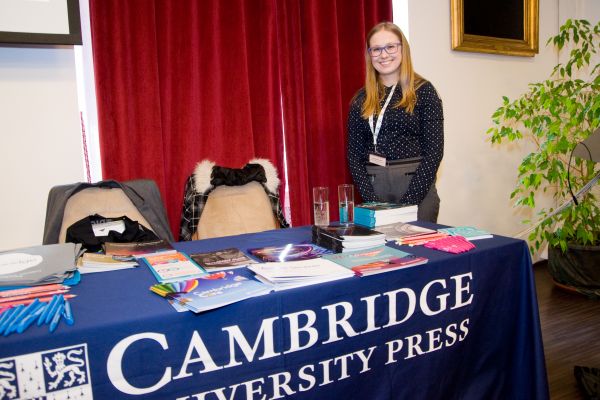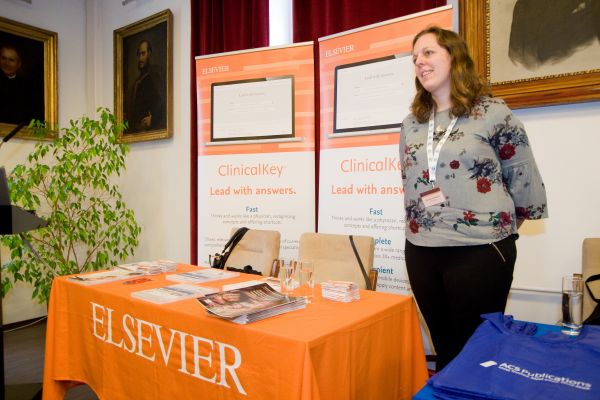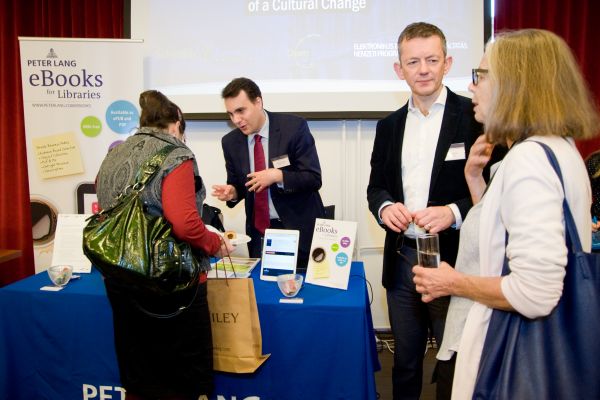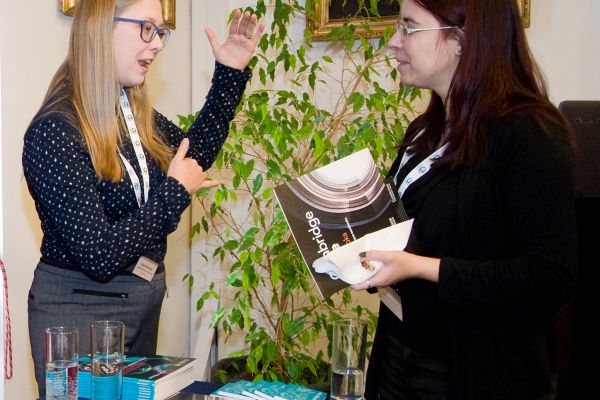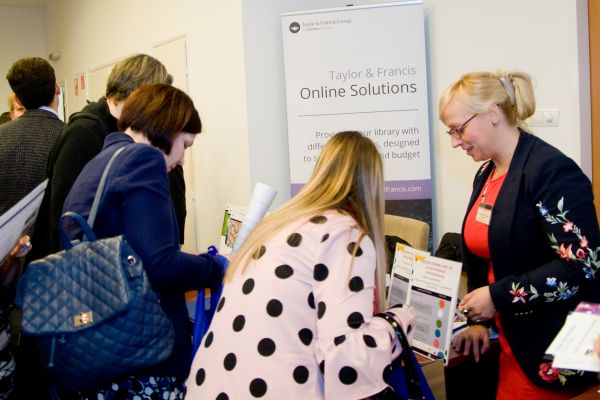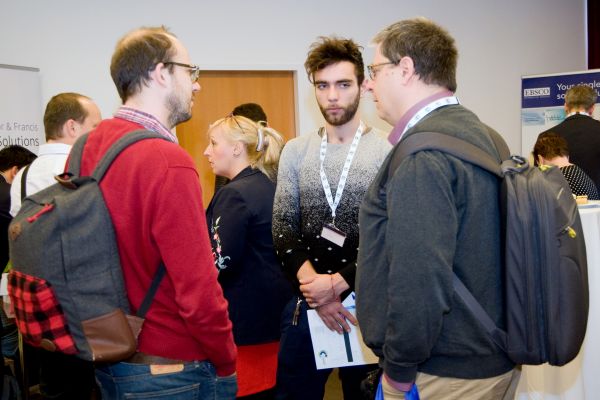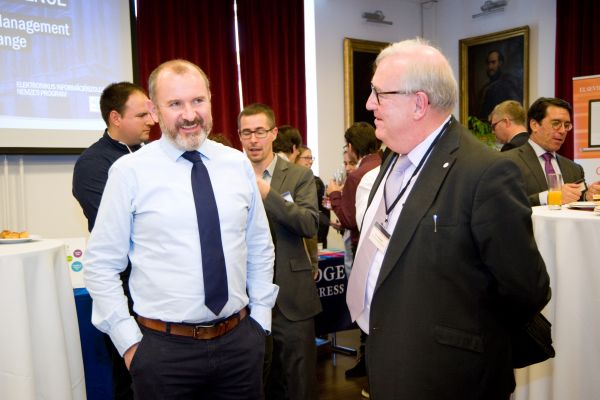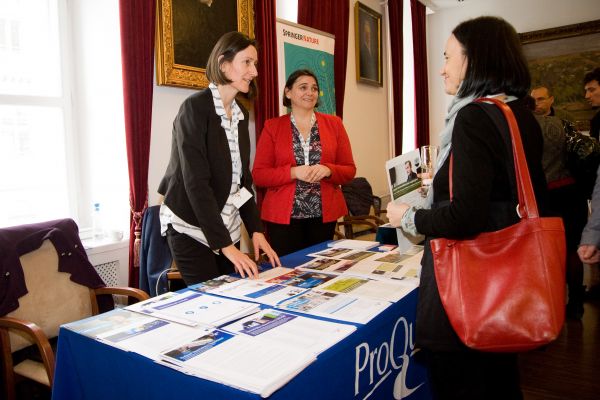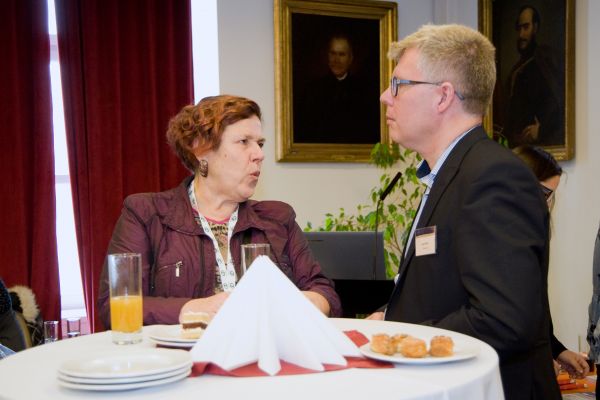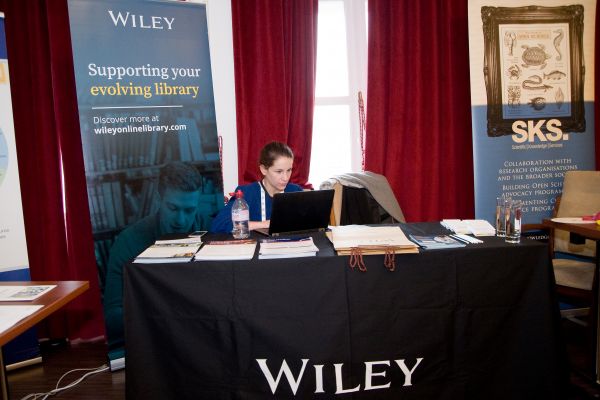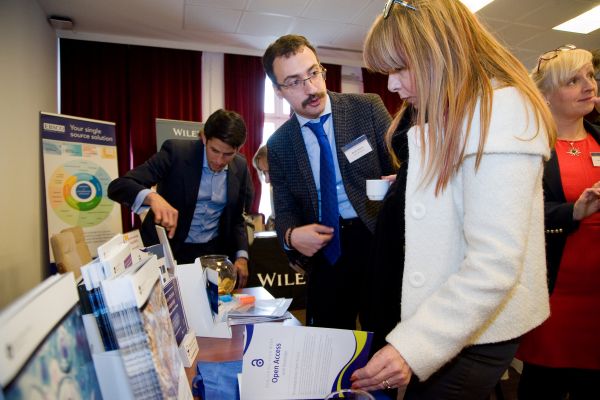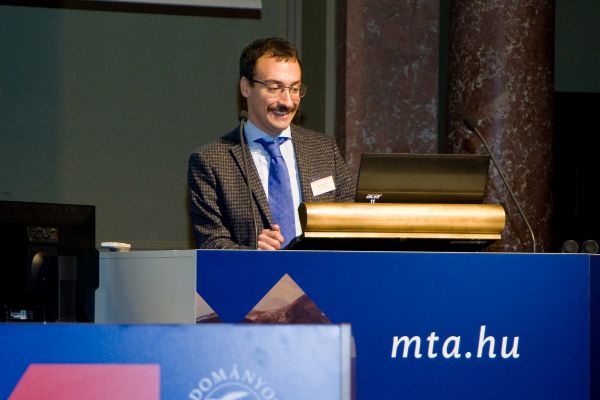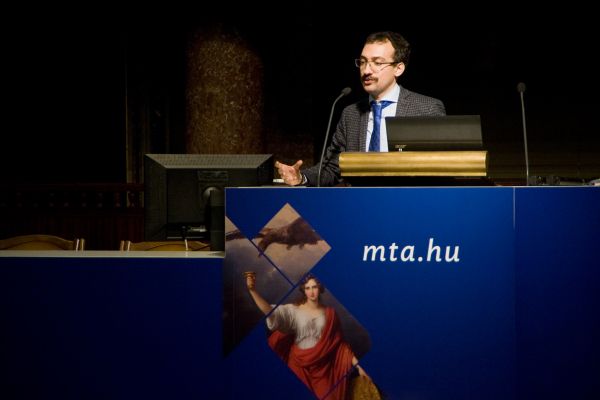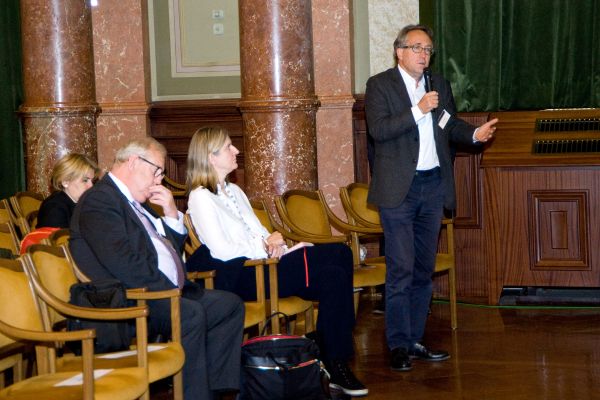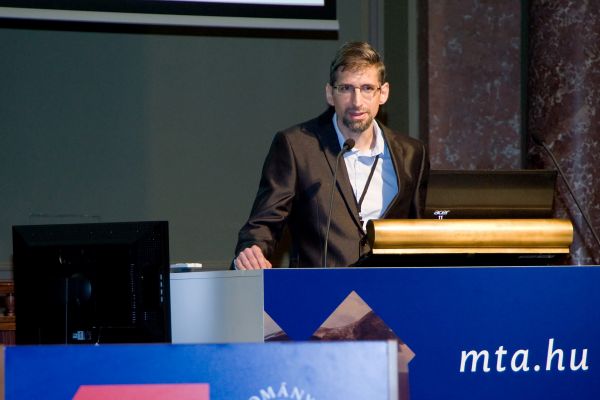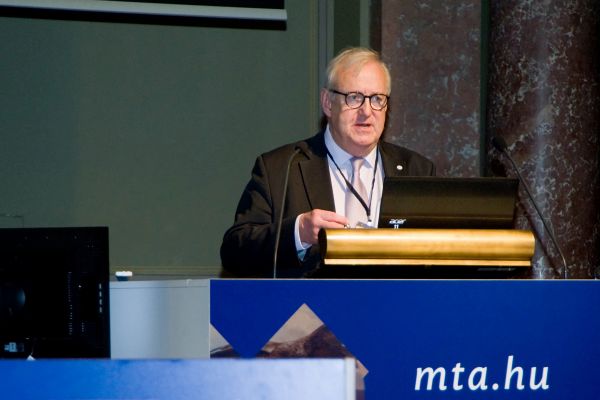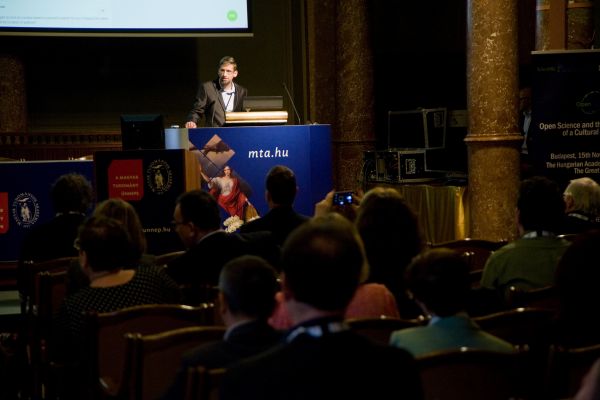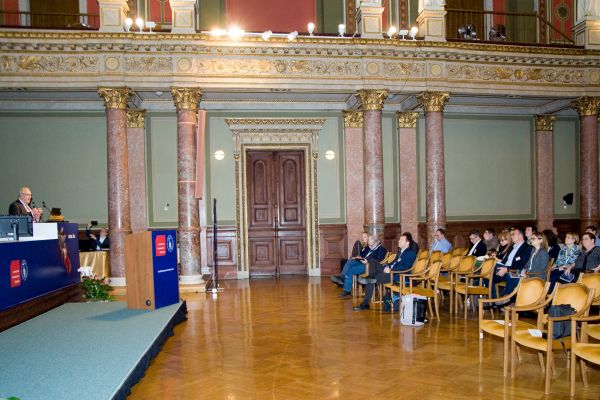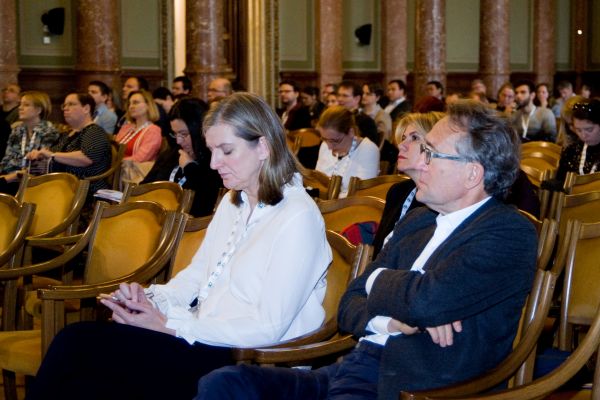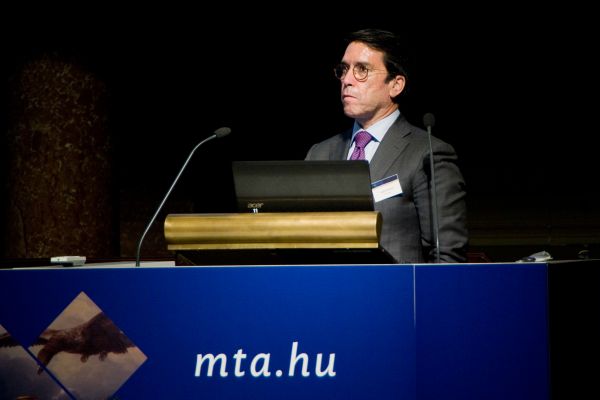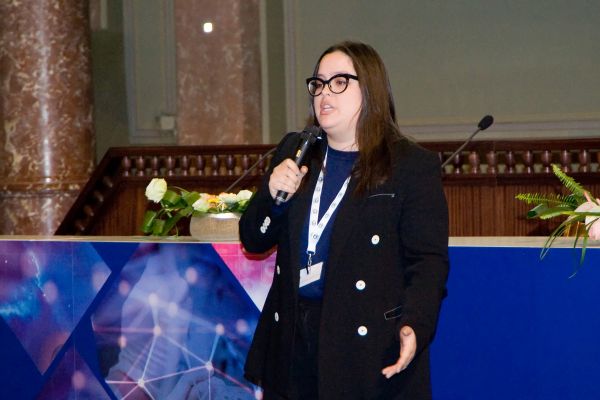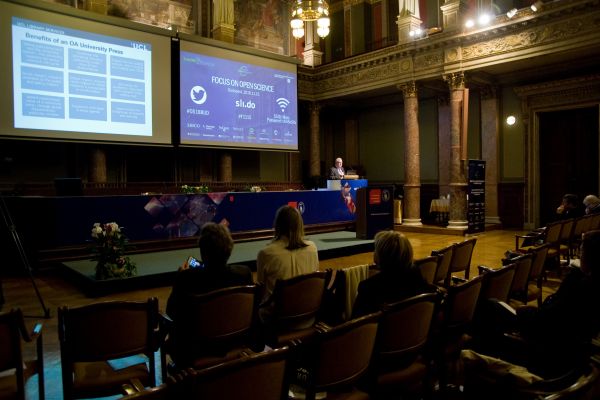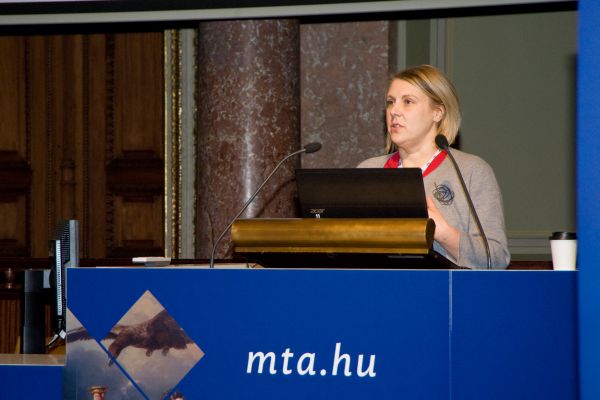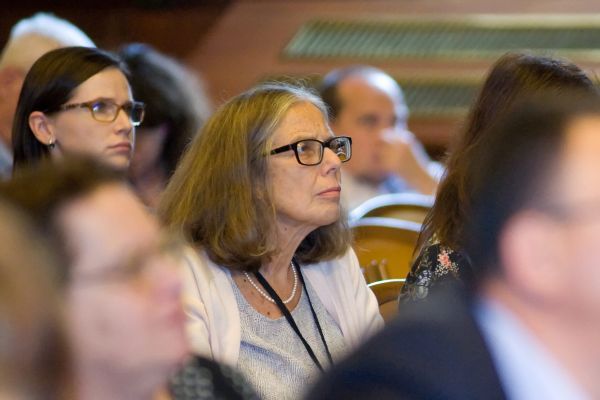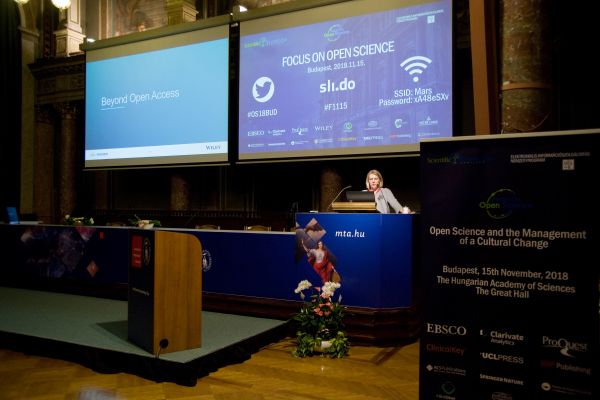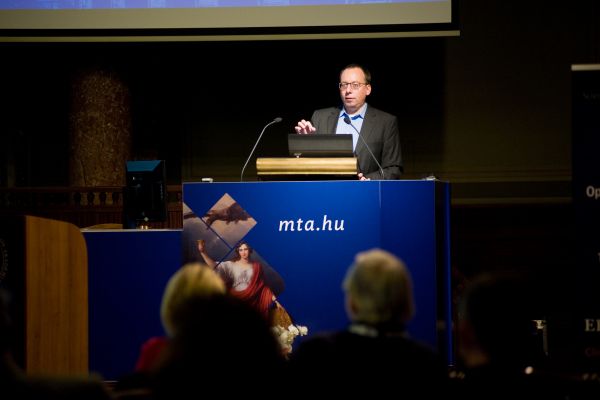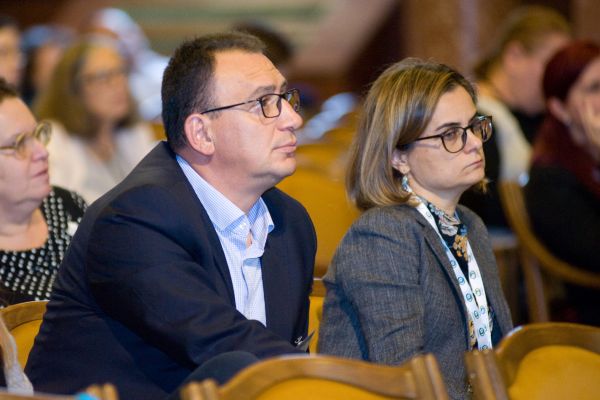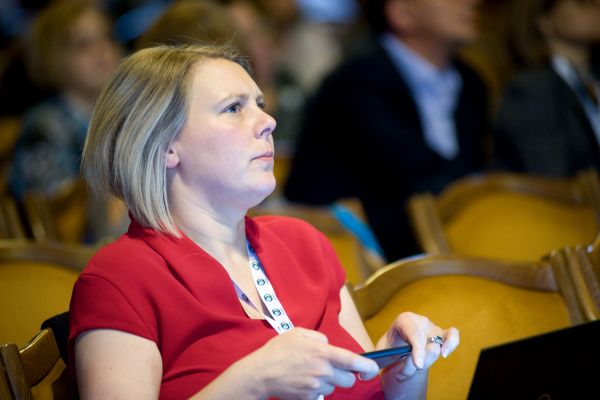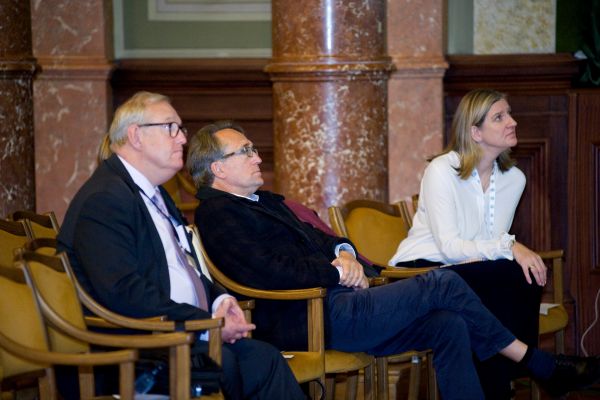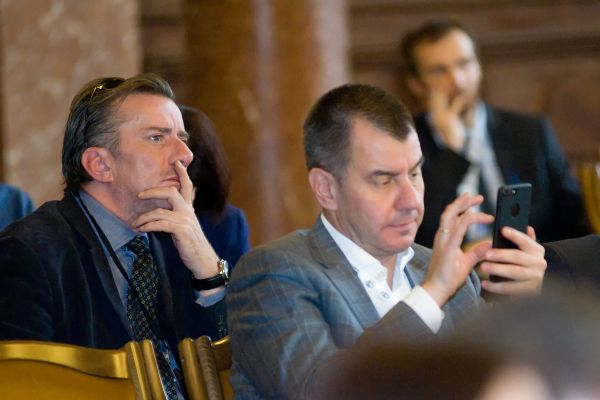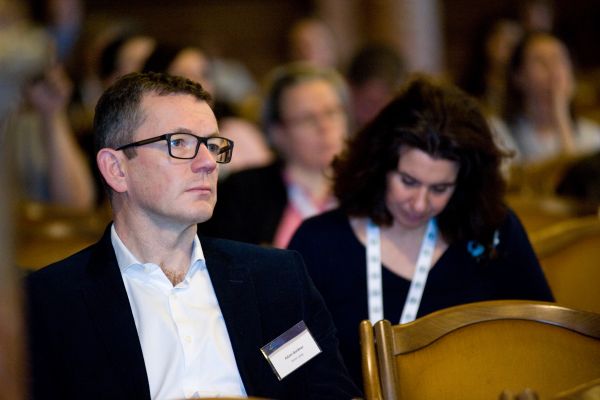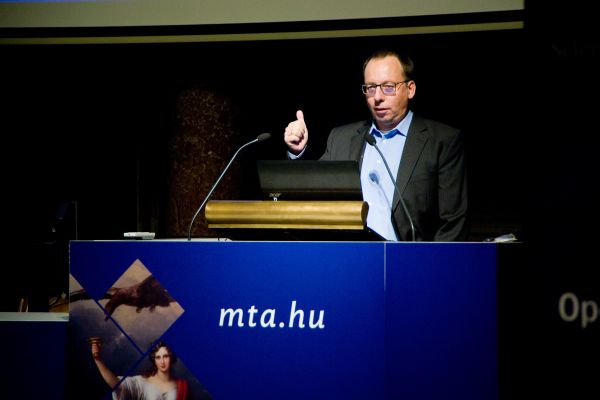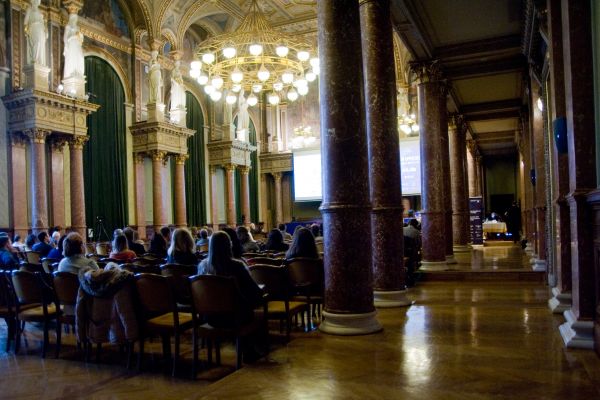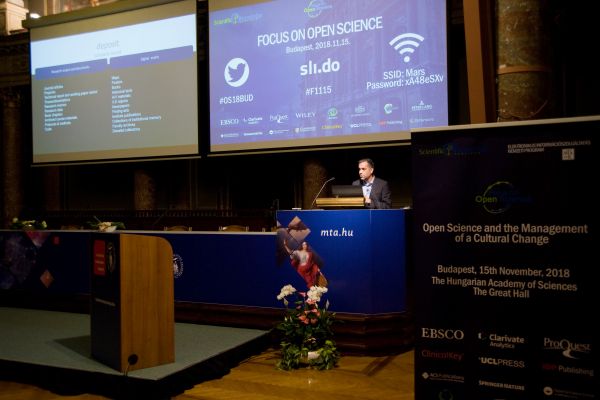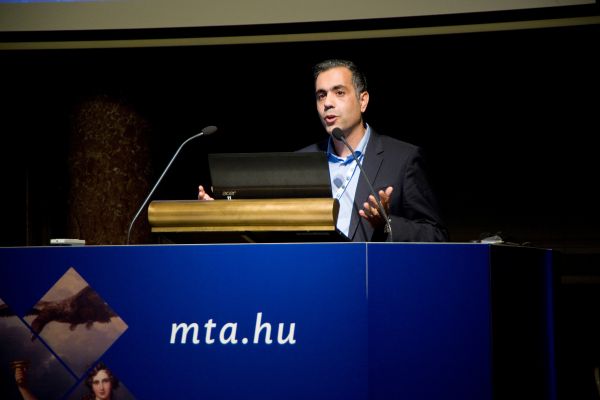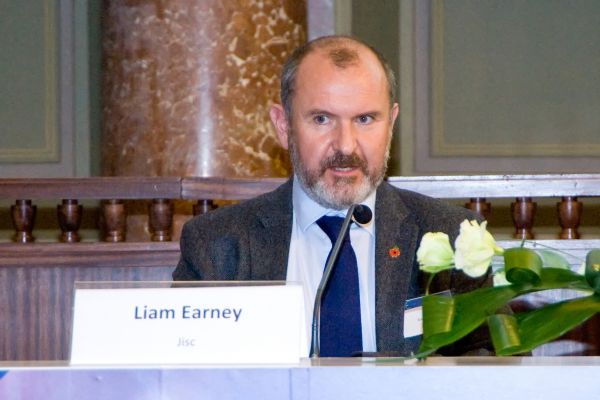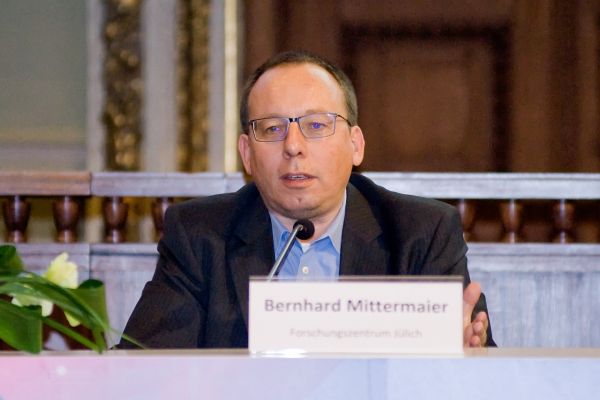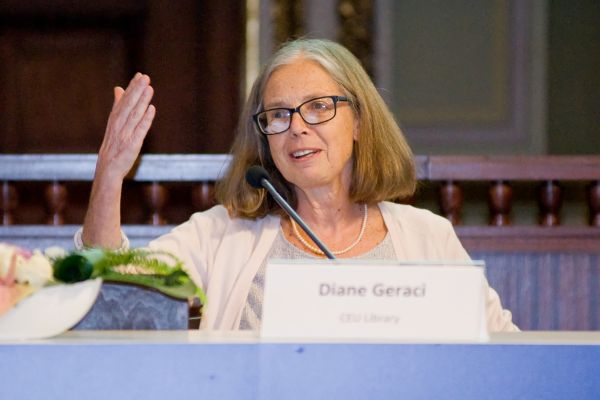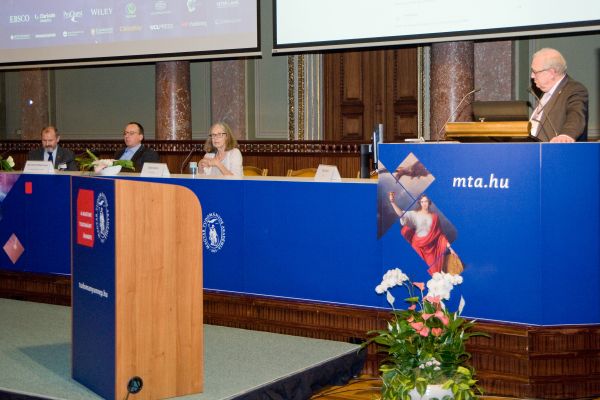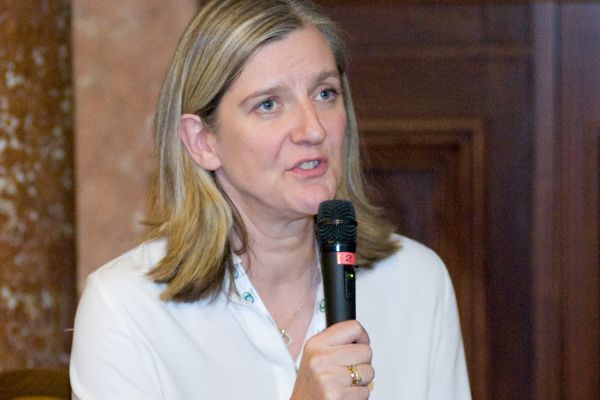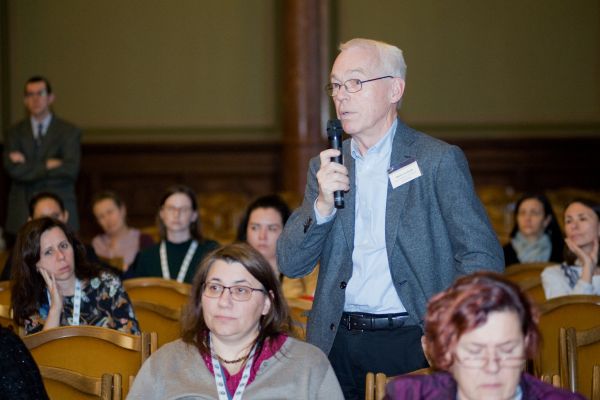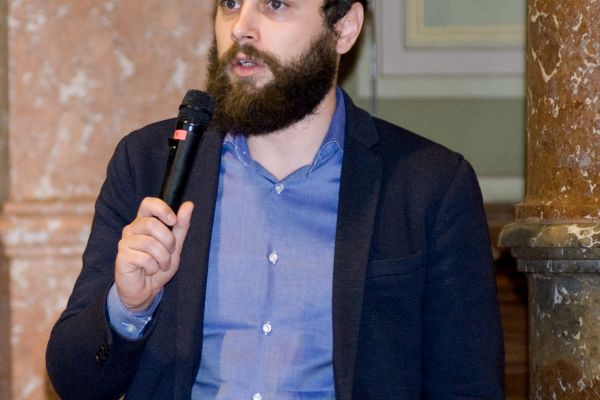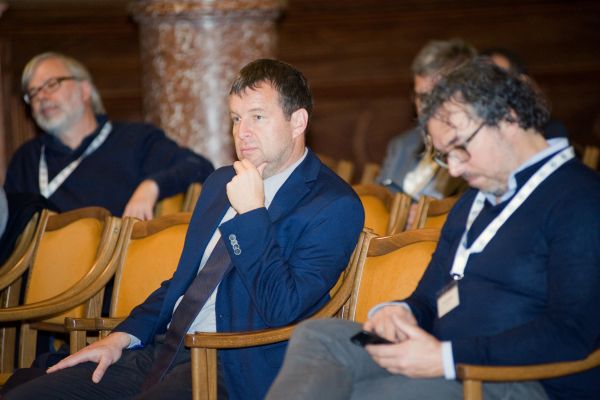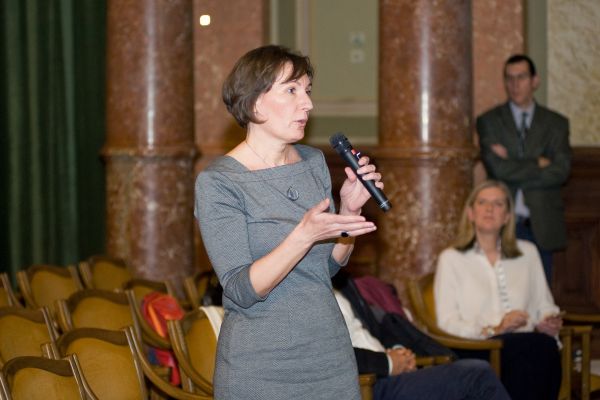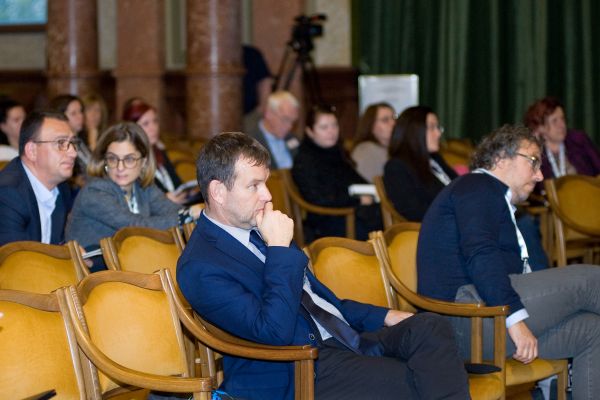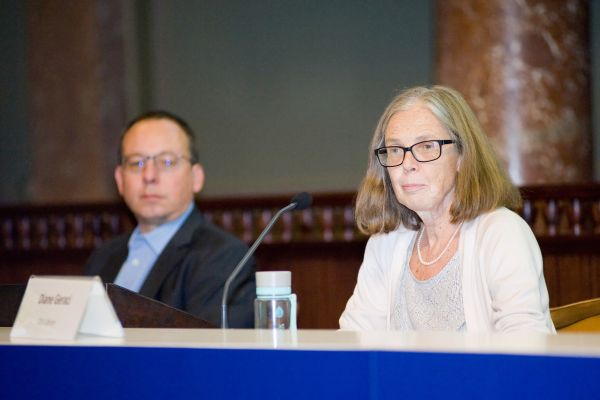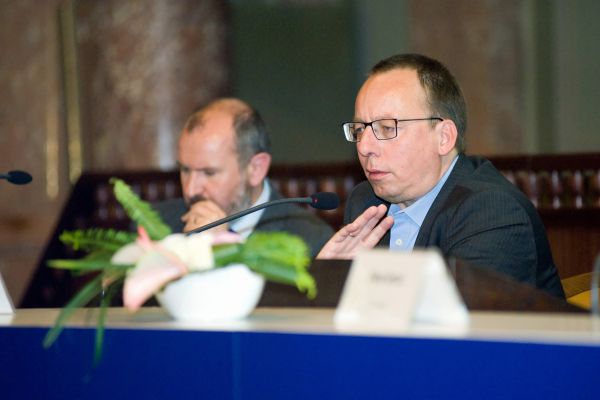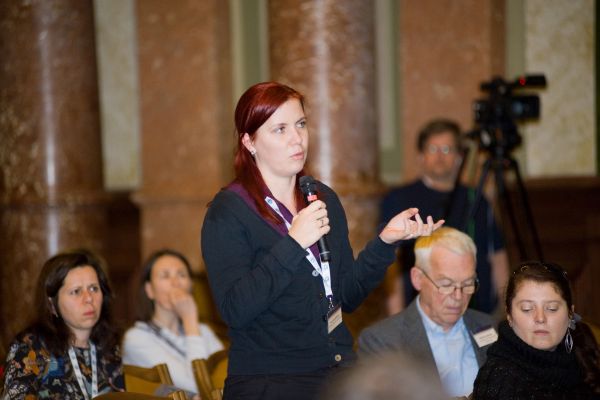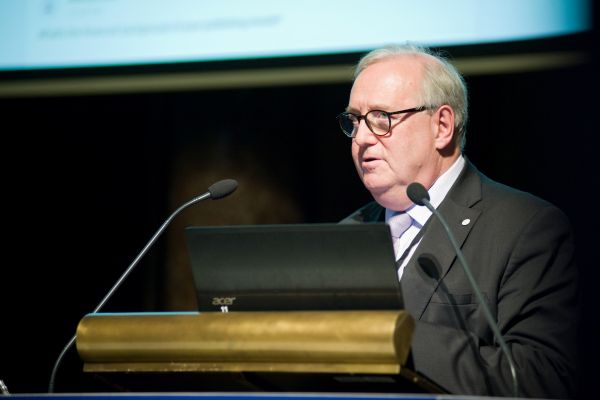Focus on Open Science - Open Science and the Management of a Cultural Change
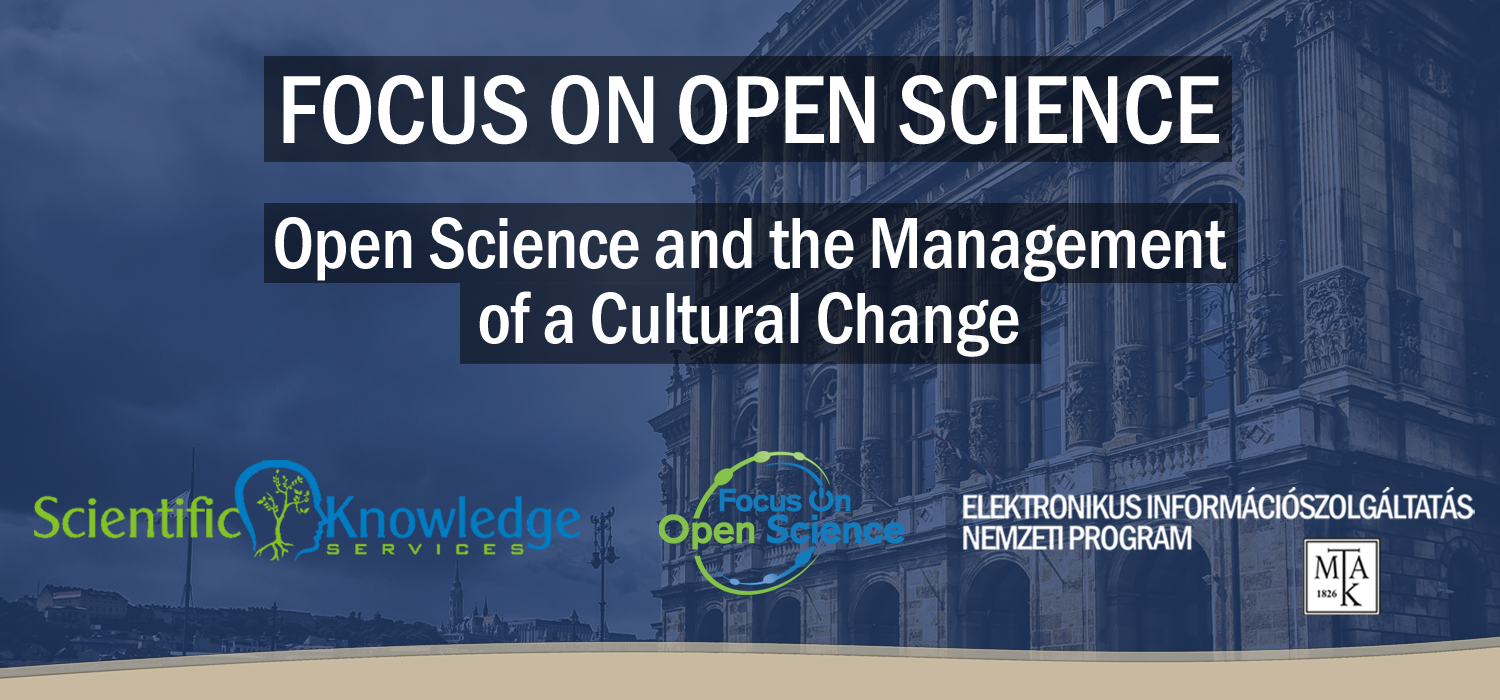
| A Magyar Tudományos Akadémia Könyvtár és Információs Központban működő EISZ Nemzeti Program és a Scientific Knowledge Services szervezésében immáron harmadik alkalommal kerül megrendezésre a Focus on Open Science konferencia Budapesten. A rendezvény célja, hogy bemutassa, az európai intézmények miként kezelik a nyílt tudomány térnyerésével kapcsolatos változásokat. | The Budapest chapter of Focus On Open Science, now in its third year is a celebration of a new culture: Open Science. The organisers, Scientific Knowledge Services and EISZ National Programme at Library and Information Centre of the Hungarian Academy of Sciences put merry work to build an event that looks on how European institutions are managing the transition to this new way of conducting the scientific effort. |
| Az alkalom nem is lehetne aktuálisabb: 2018-ban számos, a nyílt tudományra való áttérést szorgalmazó gyakorlatot láthattunk, melyek cselekvésre ösztönözhetnek másokat is. Emellett több intézmény is publikált a nyílt tudományhoz kapcsolódó stratégiai dokumentumokat, mint az Európai Bizottság, a LERU (League of European Research Universities) vagy a LIBER (Association of European Research Libraries). | The context couldn't be better: three Open Science Roadmaps were launched this year by European Commission's Open Science Policy Platform, European Association of Research Universities (LERU) and the European Association of Research Libraries (LIBER). They represent a call for action to those being ready to perform and an encouragement to all others. |
| A konferencia meghívott előadói kitűnő szakemberek, és nevükben is, szervezőként szeretettel meghívunk minden érdeklődőt, hogy aktív részese legyen a rendezvénynek. | With an international panel that excels in leadership and competence, Focus On Open Science conference invites you to be active, engage in the conversation and support a sustainable transformation. |
| A konferencia előadásai angol nyelvűek. A részvétel ingyenes, ám a korlátozott férőhelyek miatt regisztrációhoz kötött. |
The language of this event is English. Participating is free of charge but it requires prior registration due to the limited number of seats. |
|
#OS18BUD |
#F1115 |
Előadások/Programme
| 08:30 | - | 09:00 | Regisztráció/On-site Registration | |
|
09:00 |
- |
09:10 |
Megnyitó/Opening Professor Ádám Török, Secretary General of the Hungarian Academy of Sciences |
Video |
|
09:10 |
- |
09:45 |
Astrid Verheusen, LIBER The implementation of the LIBER Strategy - Powering Sustainable Knowledge in the Digital Age |
Video |
|
09:45 |
- |
10:05 |
Sponsor Talk - Clarivate Analytics Massimiliano Carloni: A data-based analysis of Open Access trend |
Video |
|
10:05 |
- |
10:40 |
Vanessa Proudman, SPARC Europe It’s high time to rethink how we pay for Open infrastructure; it’s high time to act |
Video |
|
10:40 |
- |
11:10 |
Kávészünet/Coffee Break Sponsored by The Royal Society of Chemistry |
|
|
11:10 |
- |
11:30 |
Sponsor Talk - Taylor & Francis Nicolo Pierini: Ideas for Knowledge Democratization |
Video |
|
11:30 |
- |
12:05 |
Dr. Sándor Soós, Hungarian Academy of Sciences Scientometric frameworks for practical open science management: going beyond the rhetoric |
Video |
|
12:05 |
- |
12:40 |
Dr. Paul Ayris, UCL From Open Access to Open Scholarship: UCL Press as a model for the Future of Scholarly Publishing |
Video |
|
12:40 |
- |
13:00 |
Sponsor Talk - Elsevier ClinicalKey Lais Junqueira and Eugenio Garcia: Elsevier innovations in teaching medicine and bringing knowledge to citizens. The case of cervical cancer in the Amazon jungle. |
Video |
|
13:00 |
- |
14:00 |
Ebédszünet/Lunch break Sponsored by Peter Lang Publishing Group |
|
|
14:00 |
- |
14:20 |
Sponsor Talk - Wiley Kathryn Sharples: The role of scholarly publishers in an Open Science world |
Video |
|
14:20 |
- |
14:55 |
Dr. Bernhard Mittermaier, Forschungszentrum Jülich The Jülich Open Access Barometer, a precursor for the Open Access Monitor Germany |
Video |
|
14:55 |
- |
15:15 |
Sponsor Talk - EBSCO Tamir Borensztajn, SaaS Strategy: Open, open access and discovery |
Video |
|
15:15 |
- |
16:15 |
Panel discussion on practicalities of open access workflows in university and research libraries With participation of Brigitte Kromp (Universität Wien), Diane Geraci (CEU Library), |
Video |
|
16:15 |
- |
16:30 |
Zárszó/Closing Notes |
Előadók/Speakers
Astrid Verheusen, LIBER
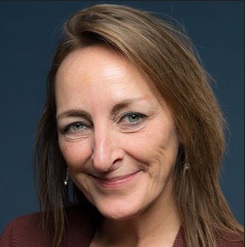
Astrid Verheusen is Executive Director of LIBER, the European Association for Research Libraries.
Astrid’s career began as a researcher at the Institute for Dutch History and as a product manager at Sdu Publishers. From 2001 onwards, Astrid worked at the National Library of the Netherlands. She was involved in projects and programs concerning mass digitisation, digital preservation and digital libraries. She headed the Digitisation Department (2009-2010) and the IT Department (2012-2014). Until May 2017 she was head of the Innovative Projects Department when she joined LIBER. A highlight of her career was the implementation of mass digitization at the National Library: 100 million pages of books, newspapers and magazines digitized between 2001-2011. She has extensive experience in the information and library sector and is driven by complex policy issues.
Presentation:
The implementation of the LIBER Strategy - Powering Sustainable Knowledge in the Digital Age
In November 2017, LIBER launched its new strategy "Powering Sustainable Knowledge in the Digital Age". The vision that has been set out is quite ambitious. In 2022 we see a world in which:
- Open Access is the predominant form of publishing;
- Research Data is Findable, Accessible, Interoperable and Reusable (FAIR);
- Digital Skills underpin a more open and transparent research life cycle;
- Research Infrastructure is participatory, tailored and scaled to the needs of the diverse disciplines;
- The cultural heritage of tomorrow is built on today’s digital information.
This presentation explains the strategy and zooms in on the way in which LIBER intends to implement Open Science. LIBER implements the strategy through various activities and projects. The work of the Steering Committees and the LIBER Working Groups will be explained, as well as the European projects in which LIBER participates.
To help research libraries to further understand and implement Open Science, LIBER published an Open Science Roadmap in July 2018. This roadmap describes how and why research libraries should be pioneers and champions for Open Science, and gives concrete examples of how all libraries can actively contribute to the development of Open Science by raising awareness, provide training, opening up research collections to innovative research methods and developing supportive policies and infrastructures. The Roadmap is not a static document and will be updated on the basis of input and feedback from work in practice from LIBER’s members. Libraries who want to do more with Open Science can rely on LIBER for support.
Massimiliano Carloni - Clarivate Analytics
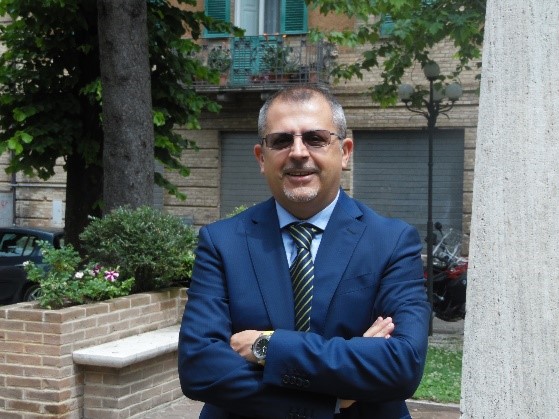
Massimiliano Carloni graduated in Electronic Engineering at Tor Vergata, E-MBA at MiB in 2008. He has been operating for over 18 years in Sales & Marketing in different sectors and markets. Massimiliano is married and a father of two daughters. Since March 2013, he has been working in Clarivate Analytics (at that time Thomson Reuters) as Solution Consultant being in charge of pre- and post- sales customer support for European customers. Previously he was in charge of the Italian Top Accounts of Elsevier. He has developed a deep knowledge of the academic publishing market, paying particular attention to digital platforms. Previously, he served for five years in the defence industry, at a multinational company (Northrop Grumman), dealing with strategic marketing, business development and institutional relations.
Presentation:
A data-based analysis of Open Access trend
Open Access is growing across the publishing landscape and OA articles can now be identified much more easily than before, but which is the real trend of Open Access ? How OA is impacting the value of journals and which impact are OA articles producing ? And again: is the Open Access reporting the same success everywhere and in all research areas ? Clarivate paved the way for making OA much more discoverable, introducing it for the first time in the researcher workflow and will be here presenting contextualized data and results of such a consolidated experience.
Vanessa Proudman, SPARC Europe
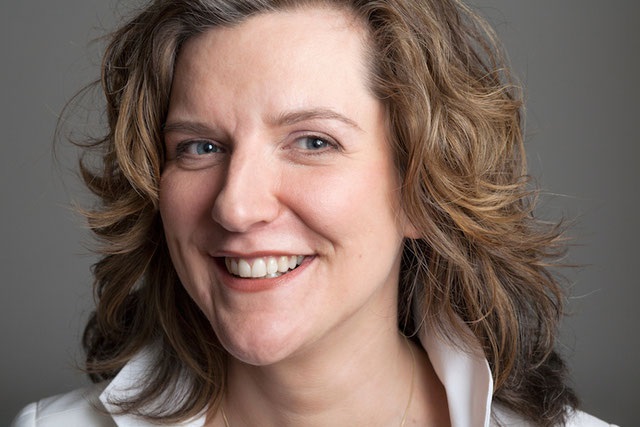
Vanessa Proudman is Director of SPARC Europe; she is working to make Open the default in Europe. Vanessa has 20 years’ international experience working with many leading university libraries worldwide, with research institutions, international policy makers, together with information and IT professionals and designers from many countries. She also headed information and IT at a UN affiliated international research institution in Vienna for 10 years. She has also been programme and project manager to Europeana. She is also the owner of Proud2Know, a consultancy that supports the development of Europe’s academic libraries.
Presentation:
It’s high time to rethink how we pay for Open infrastructure; it’s high time to act
Changes in the current scholarly communications policy, service and infrastructure
eco system require us to rethink how we will sustain our open efforts in the future. Seed funding will help us innovate; however, are we as libraries ready to invest in maintaining and further developing good practice for years to come such as services we have come to depend upon to implement our policies such as DOAJ or SHERPA/RoMEO?
Many of us in Europe are reliant on our ministries or on generous institutions for funding, but when governments or priorities change, how sure are we that this funding can or will continue? Furthermore, funders are increasingly introducing Open policies; what is their contribution to sustaining Open services / infrastructure? Or are we going to leave it to large publishers to purchase services and infrastructure to add it to their increasingly diversified portfolio, increasing our dependency on them?
A range of Open Research initiatives are experimenting with new business models to help combat these challenges. Furthermore, a new collective partnership model such as SCOSS is stimulating change in this area. Such developments are changing mindsets as regards the way we finance Open Research.
It is time to rethink how we fund the Open services and infrastructure that support Open policy and practice. Merely continuing to talk of the need to sustain service and infrastructure or taking a piecemeal approach will not cut it, we need to see a strategic vision and approach to help ensure the scholarly communications services and infrastructure are here for years to come.
Nicolo Pierini, Taylor & Francis
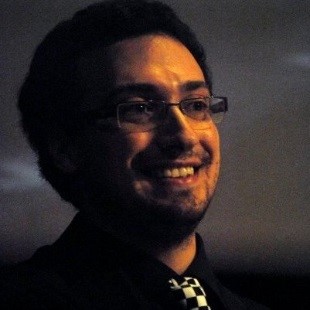
Nicolo’ Pierini works with institutions and consortia across Europe for the development of Open Access publishing with Taylor & Francis. Passionate about Open Research and how to find ways to bring academic research to the public, his long-term goal is drawing a strategy with authors and librarians to identify the best practices on how to make results of academic research understandable to the public. Graduated in Law, his other great passions are Jazz and Blues music, which he tries to pursue by playing the piano in various venues around Europe.
Presentation:
Ideas for Knowledge Democratization
30 million daily news updates are published every day.
40 million social media posts are published every hour.
How can relevant knowledge reach 21st century learners through all this information? How will policymakers, practitioners, and members of the public hear about the reliable information they need to make evidence-based decisions?
It is not enough for research just to be open. It also needs to find its way to those who can make use of it, in a format that meets their needs.
We’ll be looking at new opportunities for researchers, libraries, and publishers to work together for one of the sometimes-forgotten goals of the open science movement: helping research solve today’s real-world problems.
Dr. Sándor Soós, Hungarian Academy of Sciences
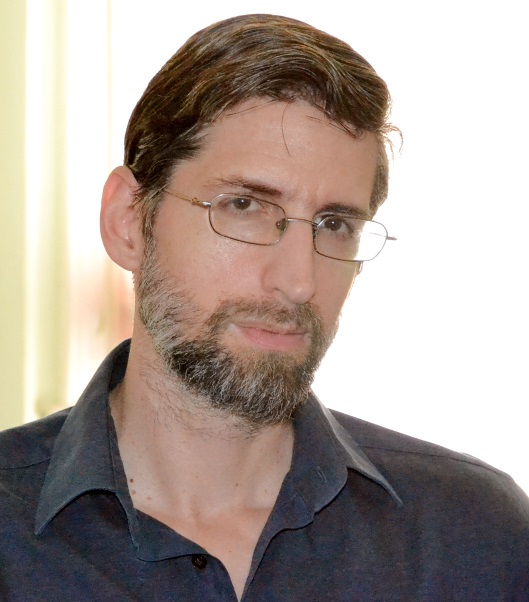
Dr. Sándor Soós is a senior researcher in scientometrics and science studies. He’s the head of the Department of Science Policy and Scientometrics at the Library and Information Centre of the Hungarian Academy of Sciences. He earned his PhD in cognitive science, on the subject of the mathematical modeling of the cognitive structure of scientific discourses, and has been a researcher in the field of science modelling and scientometrics for ten years. He earned a János Bolyai Research Grant in the field of science mapping, and contributed, as institutional PI, to various national and international large-scale research projects in S&T policy, such as SISOB (Science in Society Observatory, 2010—2013, FP7, Evaluating the Outcomes of European SSH research, 2014—2017, FP7). He has given numerous invited talks in the topic of scientometrics and research evaluation, both at national and international level, and actively collaborates with national actors in S&T policy. He is also the chair of the Scientometric Committee established for the development of the Hungarian National Scientific Bibliography (MTMT).
Presentation:
Scientometric frameworks for practical open science management: going beyond the rhetoric
Implementing open access policies in practice, or utilizing the possibilities of open science requires serious evidence-based planning for academic institutions acting within the market of scientific information. Scientometrics and bibliometrics naturally plays an outstanding role in informing these strategies, and are often being exploited by publishers for marketing purposes as well. We argue, however, that the most popular scientometrics-based arguments, – relying on concepts such as the „size of output” and „impact” – used to persuade research managers to agree on subscriptions, or to establish a subscription portfolio or an open access deal, or even to promote Open Science facilities for research evaluation are mostly rhetorical, and usually miss the points or questions crucial to the „optimal” choices. In this presentation, we propose various scientometric frameworks to address the following two broad questions: (1) What „metrics” of the target community’s publication strategies provide best support for negotiating deals and for substituting subscriptions with OA-solutions (2) What can scientometrics offer for assessing or establishing the practical value of Open Science facilities (data sources, metrics tools etc.) for research evaluation.
Dr. Paul Ayris, University College London
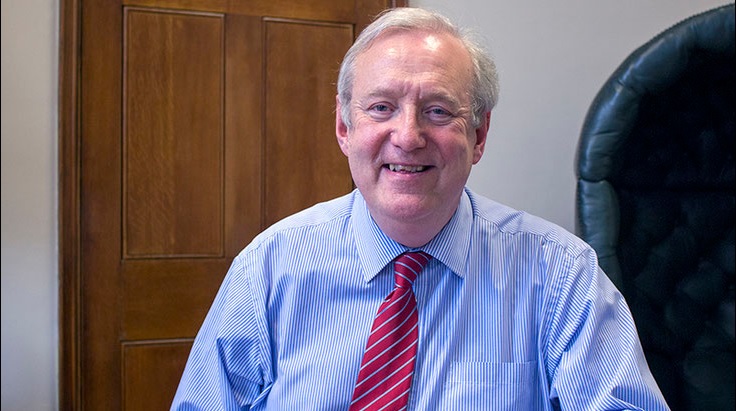
Dr Ayris is Pro-Vice- Provost (UCL Library Services). He joined UCL in 1997.
Dr Ayris was the President of LIBER (Association of European Research Libraries) 2010-14; he is now Advisor to the LIBER Board. He is Co-Chair of the LERU (League of European Research Universities) INFO Community. He chairs the OAI Organizing Committee for the Cern-Unige Workshops on Innovations in Scholarly Communication. He is the Chair of JISC Collections’ Content Strategy Group. On 1 August 2013, Dr Ayris became Chief Executive of UCL Press. He is a member of the Provost and President’s Senior Management Team in UCL. He has a Ph.D. in Ecclesiastical History and publishes on English Reformation Studies.
Presentation:
From Open Access to Open Scholarship: UCL Press as a model for the Future of Scholarly Publishing
UCL Press is the UK’s first fully Open Access University Press, founded in June 2015. The presentation will look at Open Science as defined by the European Commission, which has identified the future of scholarly publishing as one of the 8 pillars of the emerging Open Science agenda. This talk will look at the implications of new publishing models for the Arts, Humanities and Social Sciences by describing the foundation and activity of UCL Press. UCL Press publishes research monographs, textbooks and journals, and is developing a new platform for journal publishing which will be piloted from the autumn of 2018 in a subject domain in the Social Sciences. The presentation will look at the impact the Press has made – both in terms of the impact of UCL Press titles and the global engagement with the University that has resulted from Press activity. The talk will suggest that every research intensive university would benefit from establishing an Open Access Press, a move which would bring publishing back into the academy, embracing the values of Open Scholarship in the process.
Lais Junqueira and Eugenio Garcia, Elsevier ClinicalKey
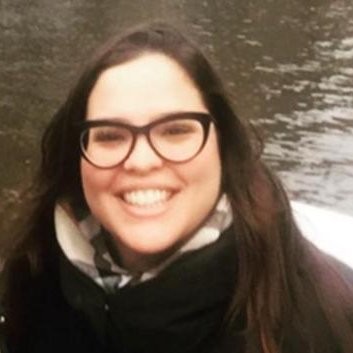
Laís Junqueira is a Clinical Specialist Account Development Manager for Health Solutions in Elsevier. Merging the roles of Quality and Patient Safety specialist and account development manager, Laís provides strategic counsel to organizations on how evidence-based information can improve patient safety and clinical outcomes and how Elsevier solutions can empower healthcare professionals on their path to deliver high quality and safer care. Prior to Elsevier, Laís honed her interest in healthcare when she worked closely with organizations starting the journey for Quality Improvement and Patient Safety as a language advisor between hospitals and Joint Commission International (JCI) in Brazil. She led JCI Accreditation Standards translation projects and as an interpreter, had the opportunity to work closely with JCI surveyors and hospitals during accreditation surveys. This experience helped her to understand the importance and challenges of maintaining high quality standards in patient safety. An entrepreneur at heart, Laís founded two successful companies that offered strategy consulting and translation services. Laís obtained her Bachelor’s degree in Marketing from ESPM in Brazil, and her post-graduate degrees in Digital Marketing from ESPM; and Conference Interpreting and Translation from the Pontifical Catholic University of Rio de Janeiro.
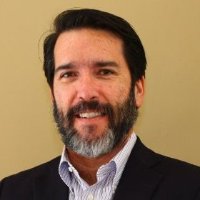
Eugenio Garcia holds a degree in law, a masters degree from IESE Business School Barcelona, and speaks 4 languages. He started his career at Elsevier in 2003, initially in the academic and government market for Spain and Portugal, and later as manager of the Southern European region. He has been working in the EMEA/LA Health Sciences department since 5 years, initially as EMEA Manager for Non Direct channels, where he expanded the electronic distribution together with major agents in the region, and since 2014 as Sales Director EMEA/LA. Ever since he started working for the Health Sciences division, one of his main goals has been to support countries in providing better health services to citizens.
Presentation:
Elsevier innovations in teaching medicine and bringing knowledge to citizens. The case of cervical cancer in the Amazon jungle.
Elsevier mission is leading the way in health. As part of that mission, our company dedicates a substantial amount of efforts and resources on innovation. This time we would like to show why and how have we developed the most innovative solution for educating future doctors and helping them solving major regional problems. We will also show an example of that in Brazil. Connected to our company mission, statistics across the globe show improvements in incidence of cervical cancer in Brazil, this preventable disease still remains the number one cancer killing women in the Amazon. Elsevier is working closely with organizations in overcoming the regional challenges with the goal of improving outcomes and ultimately supporting the eradication of cervical cancer.
Kathryn Sharples, Wiley
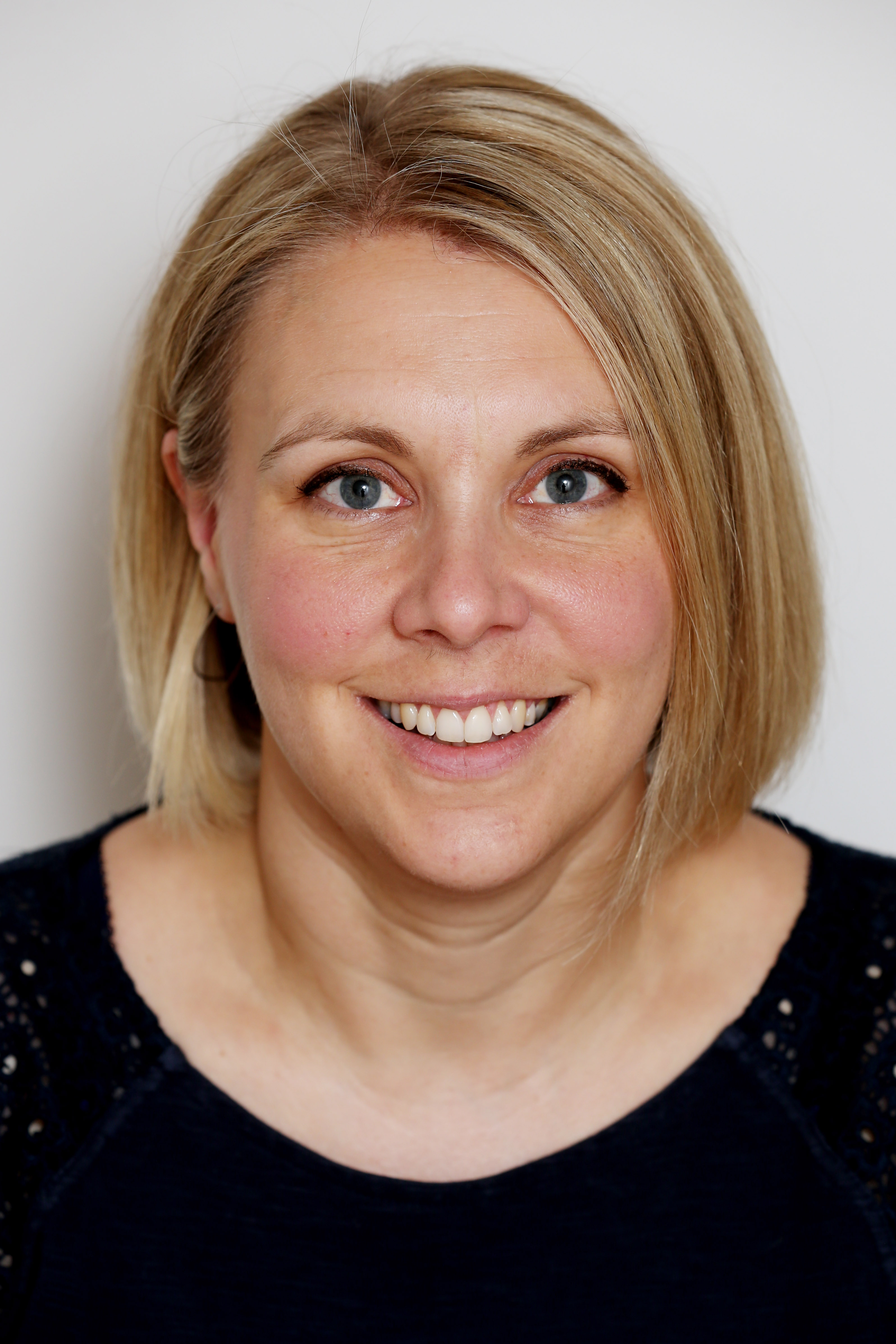
Kathryn joined Wiley in 1999, initially working on Wiley’s Engineering book publishing programme before moving on to a number of different Editorial roles in Wiley’s journal publishing business. Kathryn is responsible for the development of Wiley’s Open Access journals in EMEA and APAC and leads a team focused on developing policies and models to support Open Access publishing.
Presentation:
The role of scholarly publishers in an Open Science world
As a customer-focused organisation researchers are our ‘North Star’ and at the very core of our mission – we are committed to continually act in support of the goals of Open Access, Open Science and the library and research community, to advance research, discovery and learning. We see ourselves as an integral part of the scholarly research eco-system and Kathryn will outline Wiley’s approach and the role of a scholarly publisher.
Dr. Bernhard Mittermaier, Forschungszentrum Jülich
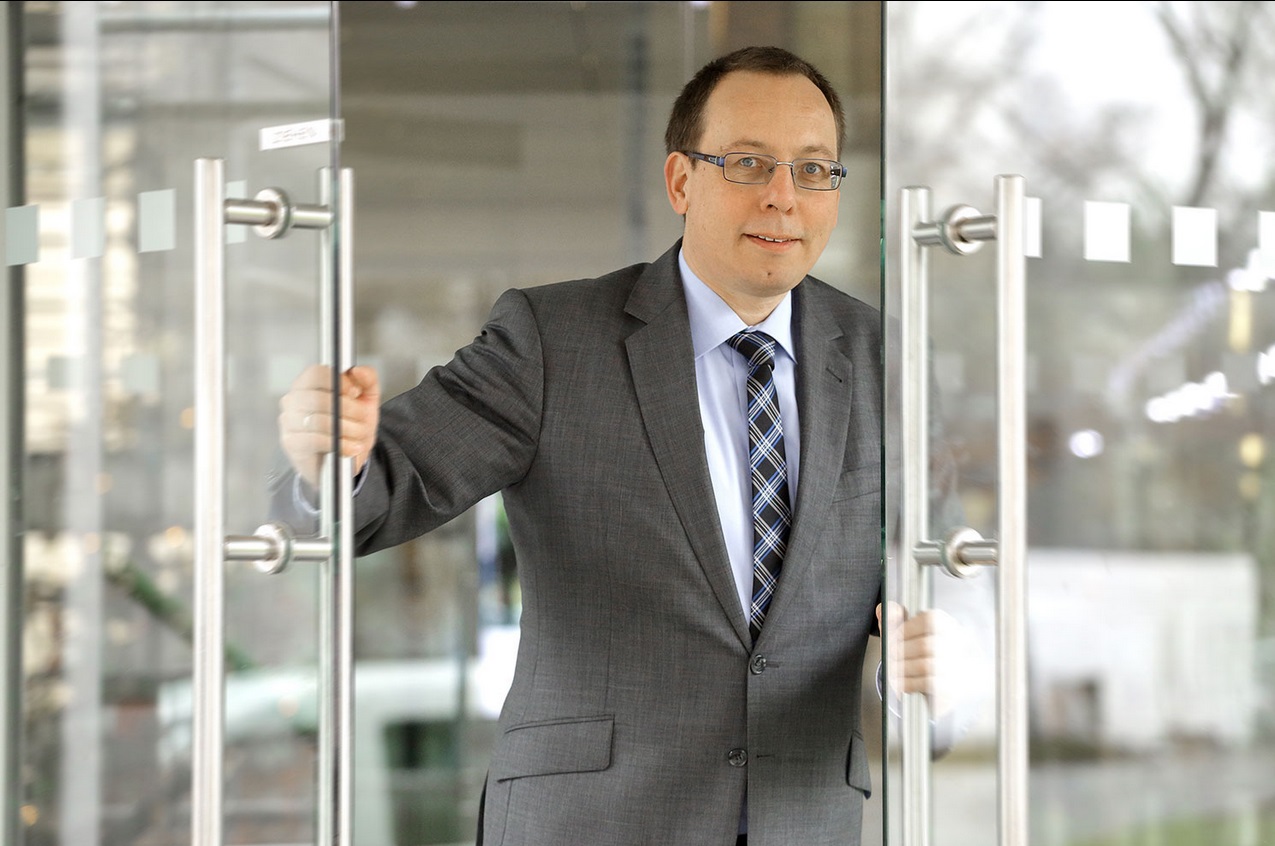
Dr. Bernhard Mittermaier has been working since 2004 at the library of Forschungszentrum Jülich (Germany), since 2008 in the role of the head of the library. Prior to that, he was a member of scientific staff at Forschungszentrum Jülich (ICG 2 / IEK-8). His education includes a diploma in chemistry, a PhD in analytical chemistry at the University of Ulm with subsidiary subjects toxicology, computer science and patent law, and a M.A. (LIS) in library and information science at the Humboldt University Berlin. Research stays were at the Semmelweis University Budapest, Hungary, the National Institute of Standards and Technology, Gaithersburg MD, USA, the German research ice breaker " Polarstern ", and on a fact-finding secondment to the Federal Ministry of Education and Research, Bonn, Germany.
Bernhard Mittermaier served in the steering committee of the German Priority Initiative & quot; Digital Information & quot; and the executive committee of COUNTER. He is now a member of the German, Austrian and Swiss Consortia Organisation (GASCO) and of Verein Deutscher Bibliothekarinnen und Bibliothekare VDB (German librarians’ association). He is a member of the DEAL project group and negotiation team and the project group of the National Open Access Contact Point OA2020-DE. His main interests are Open Access including the development of the German Open Access Monitor, licence negotiations, and bibliometrics.
Presentation:
The Jülich Open Access Barometer, a precursor for the Open Access Monitor Germany
According to the Open Access Strategy of Forschungszentrum Jülich, “the Central Library has the task of supporting the transition from subscription journals to open access and to control expenditures for subscription journals in such a manner that sufficient funds are available for gold open access publication fees (article processing charges, APCs)” 1 . To fulfill this task, the Central Library of Forschungszentrum Jülich has developed an automated joint reporting of subscription and publication expenditure along with a number of other key indicators. Their visualization is presented as the Open Access Barometer 2 on the institution’s website and constitutes an example of the visibility and further use of the data. The purpose of presenting the information on the website is to advocate open access within our institution and to demonstrate the library’s efforts towards supporting our institution’s open access goals through the considered collection development.
In an on-going project funded by the Alliance of German Research Organizations and by the Federal Ministry of Education and Research, Forschungszentrum Jülich is developing an Open Access Monitor for Germany. The concept and the visualization of the Open Access Barometer gave an example for the features integrated in the Open Access Monitor. While it is currently under construction, a beta version will be presented at the Budapest conference.
Tamir Borensztajn, SaaS Strategy
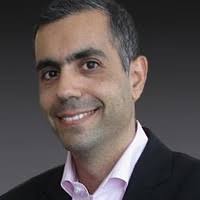 Tamir Borensztajn has served as EBSCO’s Vice President of Software-as-a-Service (SaaS) Strategy since 2014. In this role, Tamir helps inform and present EBSCO’s software strategy while working with libraries worldwide to understand their systems and software needs. Prior to joining EBSCO, Tamir served as Executive Director, Public Sector Innovation EMEA at Infor. He is a graduate of Hebrew University of Jerusalem and holds a Master in Library Science from Simmons College in Boston.
Tamir Borensztajn has served as EBSCO’s Vice President of Software-as-a-Service (SaaS) Strategy since 2014. In this role, Tamir helps inform and present EBSCO’s software strategy while working with libraries worldwide to understand their systems and software needs. Prior to joining EBSCO, Tamir served as Executive Director, Public Sector Innovation EMEA at Infor. He is a graduate of Hebrew University of Jerusalem and holds a Master in Library Science from Simmons College in Boston.
Presentation:
Open, open access and discovery
Sending information “forth to the world” has become easier than ever, but it is still not trouble-free. The question today is one of discoverability. How can we ensure that those in need of relevant information can readily find it? It goes without saying that the subject of discoverability takes on additional significance in the context of open access. Open Access research is only impactful, after all, if it gets found. This is where discovery systems should come in. Users, after all, want to be assured that they have access to valuable open access content and the technology underlying the discovery system is paramount to user success.
This presentation will look at the impact of ‘open’ in today’s library environment. The presenter will further discuss how ideas of ‘open’ are increasingly defining library technology and the industry’s approaches to content. The presenter will look at the underpinnings of an open environment, discovery technology and its relevance to discovering open access content.
Panel discussion: Practicalities of open access workflows in university and research libraries
Panelists:
Liam Earney (Jisc Collections)
Diane Geraci (Central European University Library)
Brigitte Kromp (Universität Wien)
Bernhard Mittermaier (Forschungszentrum Jülich)
Moderator: Dr. Paul Ayris (University College London)
Arany fokozatú támogatók/Golden Sponsors
 |
 |
 |
 |
 |
Támogatók/Sponsors
 |
 |
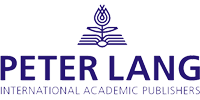 |
 |
 |
 |
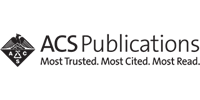 |
 |
|
 |
 |
Helyszín/Location
List of Participants
| Dr. Koltay Tibor (1) |
| Pomázi Gyöngyi (1) |
| Anonymous (1) |
| Urbán Katalin (1) |
| Dániel Ágnes (1) |
| Dér Ádám (1) |
| Lencsés Ákos (1) |
| Sütő Péter (1) |
| Baráth Eszter (1) |
| Beke Bálint (1) |
| Kürti Timea Melinda (1) |
| Bara Eszter (1) |
| Végh Judit (1) |
| Anonymous (1) |
| Szabóné Kovács Beáta (1) |
| Lendvay Miklós (1) |
| Dr. Virágos Márta (1) |
| Kovács Katalin (1) |
| Horváth Dániel (1) |
| Rusvai Mónika (1) |
| Egri Krisztina (1) |
| Pergéné Szabó Enikő (1) |
| Karácsony Gyöngy (1) |
| Fazekas-Paragh Judit (1) |
| Anonymous (1) |
| Vitéz Veronika (1) |
| Kovács Zsolt (1) |
| Bodó Beáta (1) |
| Varga Klára (1) |
| Nagy Tamás (1) |
| Dr. Kóré Veronika (1) |
| Aczél Balázs (1) |
| Anonymous (1) |
| Anonymous (1) |
| Gaálné Kalydy Dóra (1) |
| Nagy Roland (1) |
| Molnár Szilvia (1) |
| Gáborné Ferencz (1) |
| Pallos Zsuzsanna (1) |
| Szarvas István (1) |
| Anonymous (1) |
| Ruttkay Szilvia (1) |
| Csajbók Edit (1) |
| Anonymous (1) |
| Haász Antal (1) |
| Gál Tibor (1) |
| Börzsönyi Nóra (1) |
| Sári Erna (1) |
| Nagy Sára (1) |
| Nagyné Maros Gabriella (1) |
| Alexi Anna (1) |
| Frea Haandrikman (1) |
| Berhidi Anna (1) |
| Anonymous (1) |
| Szepesi Dóra (1) |
| Móring Tibor (1) |
| Stephanie Dawson (1) |
| Anonymous (1) |
| Hoczopán Szabolcs (1) |
| Anonymous (1) |
| Anonymous (1) |
| Anonymous (1) |
| Anonymous (1) |
| Anonymous (1) |
| Anonymous (1) |
| Anonymous (1) |
| Anonymous (1) |
| Anonymous (1) |
| Anonymous (1) |
| Anonymous (1) |
| Anonymous (1) |
| Anonymous (1) |
| Anonymous (1) |
| Anonymous (1) |
| Anonymous (1) |
| Ésik Szabolcs (1) |
| Kókay Péter (1) |
| vasas livia (1) |
| Bilicsi Erika (1) |
| Nagy Erika (1) |
| Elwin Gardeur (1) |
| Újváry Angelika (1) |
| Grimmné Ács Ildikó (1) |
| Anonymous (1) |
| Szigeti Gyula Péter (1) |
| Révész Ádám (1) |
| Tóth Géza (1) |
| Zólyomi Gábor (1) |
| Holl András (1) |
| Anonymous (1) |
| Béda Péter (1) |
| János Tapolcai (1) |
| Balázs Bálint (1) |
| Anonymous (1) |
| Anonymous (1) |
| Anonymous (1) |
| Winkler Bea (1) |
| Keveházi Katalin (1) |
| Berek László (1) |
| Anonymous (1) |
| Anonymous (1) |
| Giczi András Béla (1) |
| Heuer Orsolya (1) |
| Reszegi Tünde (1) |
| Karnausz Terézia (1) |
| Dr. Pálinkás József (1) |
| Anonymous (1) |
| Gyula Mester (1) |
| Anonymous (1) |
| Kozákné Szabó Claudia (1) |
| Heizler Gábor (1) |
| Anonymous (1) |
| Dr. SInóros-Szabó Laura (1) |
| Áts József (1) |
| Szabó Fanni (1) |
| Dr. Kakuszi Andrea (1) |
| Anonymous (1) |
| Szluka Péter (1) |
| Hajdú Zsuzsanna (1) |
| Kovács László (1) |
| Szabó Noémi (1) |
| Marouf Dániel (1) |
| Anonymous (1) |
Powered by iCagenda

